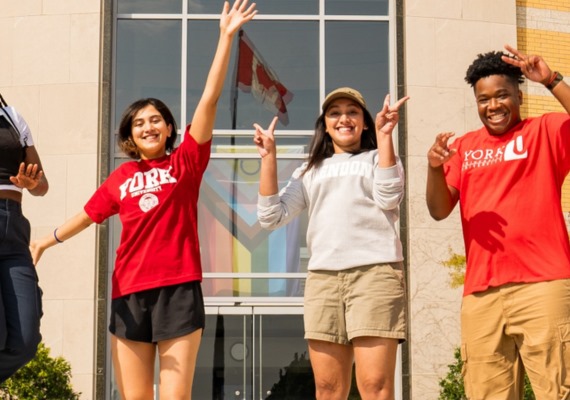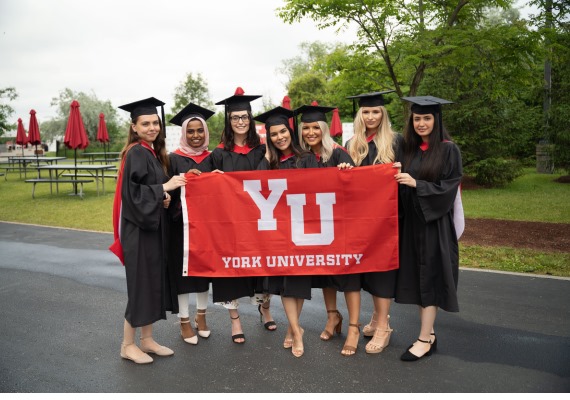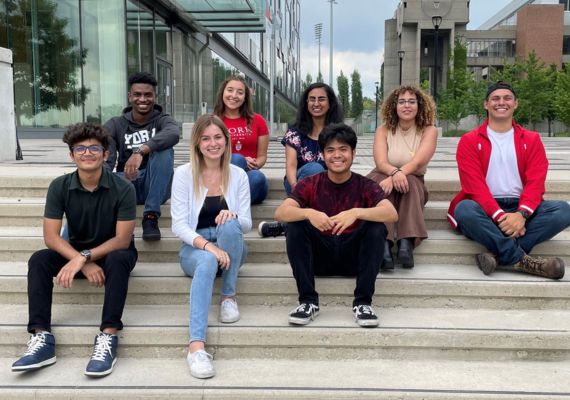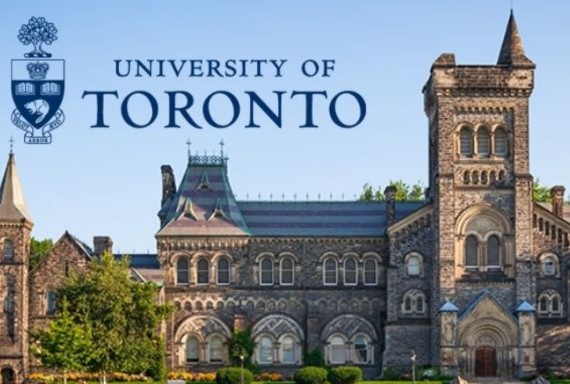Study Visa
At ALPS Immigration Services, we understand your desire to build a future in Canada. We are committed to addressing all your concerns, from the costs involved to the courses you can pursue for further studies, and the process of obtaining your Permanent Residency (PR). This article will provide you with all the essential information to guide you through each step of your immigration journey.
Why prefer Canada to get further education?
Studying in Canada offers world-class education, a diverse and inclusive environment, vibrant cities, breathtaking landscapes, and valuable post-graduation work opportunities. This experience not only enriches your academic and cultural journey but also provides potential pathways to permanent residency. At ALPS Immigration, we guide you through the entire process, ensuring a smooth transition to your Canadian educational experience and future career prospects.
- To start, Canadian universities are ranked in the top 200 worldwide for educational quality, which is the most important consideration for any student.
- Tuition is typically less expensive than at other prestigious universities in the US, UK, and Australia.
- Canada has the third-best quality of life in the world according to rankings.
- You’ll feel at home in Canada, which is among the safest and most diversified countries.
- Investing in education in Canada will pay off in the long run, regardless of whether you want to remain or return. We always invest to grow.
Let’s check out the process for further studies.
- Choosing a Course and Organization: Decide which school and course of study you want to enroll in. Verify the institution’s recognition and eligibility before applying for a study visa.
- Verify your eligibility. Examine the requirements in the nation where you intend to study for eligibility to receive a study permit. This could involve elements like educational background, financial means, and linguistic ability.
- Apply to your dream school by applying to DLIs or designated learning institutions. Apply to the school of your choice. A letter of approval, which is necessary for the study permit application, will be sent to you upon acceptance.
- Complete Application Forms: Carefully and finish out the study permit forms before applying.
- costs for applications: Pay the necessary application costs. Depending on the nation and processing timeframes, fees may change.
- Application Submission: Send your filled-out application form to the relevant immigration department or visa application center, along with all necessary supporting documentation. You might need to submit an application on paper in some countries, while you might be able to apply online in others.
- Biometrics and Interviews (if needed): As part of the application process in certain countries, you can be asked to submit biometric data (such as your fingerprints and photo). You could occasionally additionally have to show up for an interview.
- Await Processing: Watch for the completion of your application. Processing times can change based on the nation and season.
- Get a Decision: You will be notified of the outcome of the application for a study permit after it has been reviewed and processed. Your study approval, which details any terms of your stay, including whether you can work while you’re a student, will be issued to you if you’re accepted.
- Travel and Arrival: After the study approval is granted, you can schedule your travel to the nation of study. Make sure you get there before the program’s start date.





Document Needed
Gather all the information you’ll need to apply for a study permit. Commonly found documents could be –
- Travel document or passport
- Acceptance letter from DLI
- Evidence of financial assistance
- Evidence of language ability (if needed)
- results of a medical examination (if required)
- Any more paperwork that the immigration authorities specify.
- What is a Canadian study permit?
A Canadian study permit is a legal document that allows foreign students to enroll in academic, professional, or vocational programs at designated learning institutions (DLIs) in Canada. Issued by Immigration, Refugees and Citizenship Canada (IRCC), this permit is required for international students to study in Canada for programs longer than six months.
How much it can cost you to study in a public college?
CANADIAN STUDENT HOUSING
As an international student, housing will likely be one of your largest expenses in Canada. Fortunately, there are a variety of housing options available due to the country’s diverse rental market. You can choose from off-campus rentals, subleasing with other tenants, staying in on-campus dormitories, or living in a homestay.
TUITION FEES
Tuition fees for international students in Canada are generally higher than for Canadian citizens and permanent residents. However, Canada remains more affordable compared to other popular study destinations like the U.S., Australia, and the U.K. On average, graduate tuition fees are around $19,252, and undergraduate tuition fees are approximately $32,019 annually. The costs vary by province, with Ontario being the most expensive at $40,724, while New Brunswick offers the lowest fees.
ON-CAMPUS HOUSING
Living on campus offers the convenience of being close to classes, making it an ideal choice for first-year students. It’s easier to secure a lease from abroad, and many campuses offer dormitories with meal plans included. On-campus housing typically costs between $250 and $625 per month, depending on the residence and meal plan options.
OFF-CAMPUS HOUSING
After your first year, you may need to find off-campus housing, as many Canadian universities and colleges don’t offer on-campus accommodations for upper-year students. The cost of renting an apartment or house varies based on location and type of accommodation. Private shared housing can cost between $250 and $700 per month, and sharing with one or more roommates can help lower costs.
HOMESTAYS
Homestays provide a unique opportunity to live with a Canadian family, allowing you to experience Canadian culture firsthand while receiving support and guidance from your host. Typically, homestay placements come with a $200 fee, and the average cost for the year is around $1,150. This option offers a comfortable, family-oriented living arrangement.
MEDICAL INSURANCE
All international students at Canadian universities are required to have health insurance. In some provinces, international students are eligible for the public healthcare system, while in others, they must purchase private health insurance. In provinces where public healthcare is not available, universities typically offer health insurance plans for international students, which can often be included in your tuition fees or other expenses. It’s essential to check the specific requirements of the province and university to ensure you are covered during your studies in Canada.
TRANSPORTATION
In Canada, international students usually don’t have their means of transportation, but if you live in an urban area or close to your college or institution, you should have no trouble obtaining
trustworthy public transportation. There are affordable transportation options available to go to university and your place of employment, starting with Uber to quarterly bus passes at discounted student rates
.

DID YOU KNOW?
With effect from January 1, 2024, Immigration, Refugees and Citizenship Canada (IRCC) has announced an increase in the financial threshold for the cost of living for applicants seeking study permits. The cost-of-living criteria for a single application have been fixed at $10,000 since the early 2000s, which has presented difficulties for students as living expenses have increased over time. Beginning in 2024, a single candidate will need to prove their financial readiness by providing $20,635, which is equivalent to 75% of the low-income cut-off (LICO), plus money for their first year’s tuition and living expenses. New applications for study permits submitted on or after January 1, 2024, are subject to this modification.
DID YOU KNOW WHAT IS DLI?
Generally, “DLI” refers to a “Designated Learning Institution.” A DLI is a school that has received government approval to accept international students and is recognized as such in the US, Canada, and other countries. For these institutions to be permitted to admit international students, they must fulfill specific requirements and standards established by the immigration authorities. International students frequently have to submit documentation of their acceptance to a DLI as a requirement of their application procedure when requesting a study permit or visa.
WHY YOU CAN TRUST US?
At ALPS Immigration, we stand out as your trusted partner for immigration services, offering exceptional support, personalized guidance, and a proven history of success. We provide comprehensive assistance throughout the entire immigration process, from determining your eligibility to facilitating your study visa application, ensuring a smooth transition to your new life in Canada.
TOP 10 PUBLIC UNIVERSITIES FROM UNIRANK
- University of Toronto (Toronto)
- The University of British Columbia (Vancouver)
- McGill University (Montreal)
- University of Waterloo (Waterloo)
- Simon Fraser University (Burnaby)
- University of Alberta (Edmonton)
- University of Calgary (Calgary)
- York University (Toronto)
- Western University (London)
- McMaster University (Hamilton)

